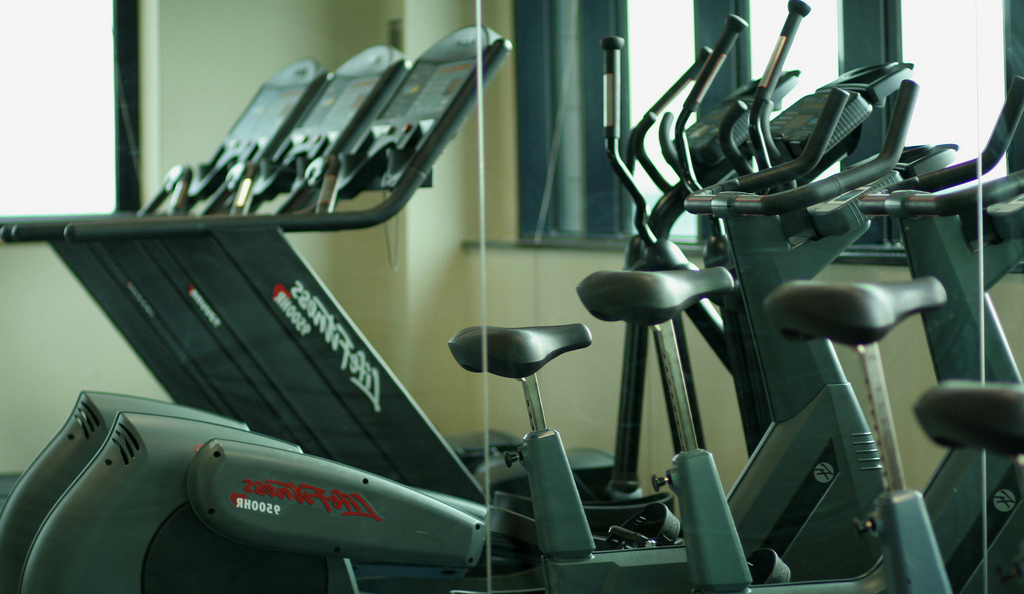Most of us don't love talking about how we're getting older as the years pass by, though it can be extremely important to face the truth about the realities of aging — and the realities of menopause.
The decline of reproductive hormones (coupled with the frustrating symptoms that come along with it) is something every woman on Earth knows they'll have to deal with eventually. However, we often allow ourselves to put off really figuring out what to do about it until we're in the throes of mood swings, hot flashes, and unpredictable metabolism changes.
The truth is that this period of our lives really doesn't have to be all that horrible of an experience. Take a look below to see 10 of the common mistakes many women make when dealing with menopause.
Let us know in the comments if we missed any other misunderstandings floating around, and be sure to SHARE with your friends!
[H/T: Prevention]
Thumbnail Sources: Flickr 1, 2
1. Putting Up With Hot Flashes

As the most common symptom of "the change," women often believe they just have to wait out the sweaty side effect. But there are actually both natural and hormone-therapy options that can significantly reduce the shift in body temperature.
According to Prevention, doctors have done studies showing the average woman has hot flashes for about seven years, if not more. That is a long time to try and just power through. Asking your doctor about options can be an enormous help.
2. Eating As Much As Before

If you were already eating fairly healthy, you might assume there's no need to change your diet. But the Mayo Clinic actually recommends eating about 200 less calories per day due to the condition's effects on your metabolism.
3. Avoiding All Sugar

While it is a good idea to curb your sweet tooth during menopause to help maintain blood sugar levels, cutting it out entirely can lead to binging and making things worse.
Instead, studies published by the Academy of Nutrition and Dietetics have shown that it's better to stick to the natural sugars found in yummy fruits when you feel the craving for something sweet.
4. Taking Too Much Calcium

You might be eating extra dairy and taking supplements to help with the dip in bone density that occurs, but according to the U.S. Department of Health & Human Services, it is possible to go overboard and potentially cause kidney stones and constipation — and some reports even point to heart disease.
5. Only Doing Cardio

According to WebMD, you also need to make sure you're including strength and muscle training with weights, squats, and lunges to reduce the risk of things like osteoporosis and to maintain a healthy metabolism.
6. Not Drinking Enough Water

Many of us are guilty of not gulping down the recommended 64 ounces of water each day, but it's especially important to remember this task during menopause.
Research from the National Institutes of Health shows how dehydration can cause nasty side effects like lower kidney function and unregulated sodium levels.
7. Falling For Negative Rumors About Hormone Therapy

Though there are risk factors in the treatment, most of the nastier side effects have been blown out of proportion when it comes to women under the age of 60 looking to help ease their symptoms with hormone therapy.
In fact, the Mayo Clinic has reported that treatments can also help prevent heart disease in many patients.
8. Giving Up On A Sex Life

Hormonal changes frequently result in vaginal dryness. WebMD lists plenty of other factors that can keep ladies from getting in the mood, but that doesn't have to mean it's the end of your intimate life.
Topical lubricants and estrogen treatments have helped women continue to enjoy a healthy sex life well into their 70s and 80s.
9. Not Getting Enough Sleep

This basic essential is obviously necessary for everyone, not just those going through menopause. But according to the National Sleep Foundation, roughly 61 percent of menopausal women battle insomnia due to their hot flashes, mood swings, and the development of breathing disorders.
Again, hormone therapy is a great remedy for those suffering from decreased sleep.
10. Skipping New Medical Screenings

In addition to maintaining regular checks on blood pressure and cholesterol, women going through menopause also need to have their hormone balance looked at every now and then.
The U.S. Department of Health and Human Services also recommends colorectal cancer screening, bone-density screening, and a mammogram every couple of years (or even more frequently) when the body is changing and becoming more vulnerable to new medical issues.
Did we miss any big mistakes women make while dealing with menopause? Let us know below, and be sure to SHARE with your loved ones!




